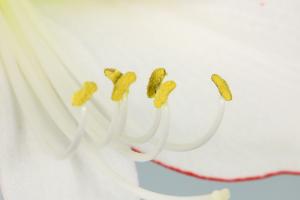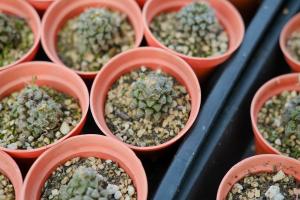Does a Vacuole in Plant Cell Hold Food and Water?
Plant cells differ in structure and function from animal cells. One of the key features that distinguishes plant cells is the presence of a large central vacuole. The vacuole is a vital organelle that plays a significant role in the plant cell's growth, development, and survival. However, there is a popular misconception that the vacuole in plant cells only holds water. This article will explore whether a vacuole in plant cell holds food and water.
What is a Vacuole in Plant Cell?
A vacuole is a membrane-bound organelle found in plant cells. It is a large, fluid-filled space that is essential for the plant cell's normal functioning. Vacuoles are filled with cell sap, a solution containing various inorganic and organic molecules temporarily stored by the cell. Depending on the type of plant cell, the vacuole can occupy as much as 90% of the cell's volume, pushing the cytoplasm and nucleus to the edge of the cell.
Does a Vacuole Hold Water?
The vacuole's primary function is to store water and maintain cellular turgor pressure, which is critical for the growth and rigidity of plant cells. The vacuole absorbs water by osmosis when the cell is placed in a hypotonic solution, such as water, and releases water when the cell is placed in a hypertonic solution, such as a saline solution. Thus, the vacuole acts as a water reservoir for the plant cell.
Does a Vacuole Hold Food?
While the vacuole is widely associated with storing water, it also stores food in plant cells. The plant vacuole contains various organic compounds such as amino acids, sugars, enzymes, pigments, and secondary metabolites. These compounds are either made within the cell or taken up from the environment and then stored in the vacuole. The organic molecules in the vacuole serve as a reserve source of nutrition for the plant cell, and they also play a role in the plant's defense against herbivores, pathogens, and environmental stresses.
What Happens When the Vacuole Fills with Water or Food?
If the vacuole fills with water or food, it can exert pressure on the cell wall, making the cell turgid or rigid. Turgor pressure is essential for the growth and stability of plant tissues, and it prevents the cell from collapsing. In contrast, if the vacuole loses water, the cell will become flaccid, and the plant will wilt. Similarly, if the vacuole loses nutrients, the plant may suffer from malnutrition.
Conclusion
In summary, a vacuole in plant cell holds both water and food. The vacuole's primary function is to store water, but it also stores organic molecules such as amino acids, sugars, pigments, and enzymes. Understanding the vacuole's role in plant cells can provide insights into plant growth and development, as well as promote better ways to enhance plant productivity and resilience.

 how many times do yo...
how many times do yo... how many planted tre...
how many planted tre... how many pine trees ...
how many pine trees ... how many pecan trees...
how many pecan trees... how many plants comp...
how many plants comp... how many plants can ...
how many plants can ... how many plants and ...
how many plants and ... how many pepper plan...
how many pepper plan...































